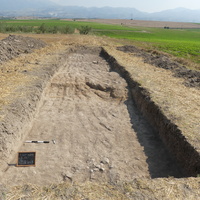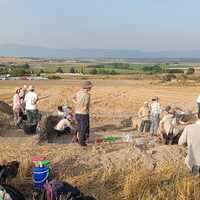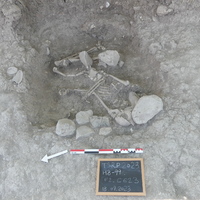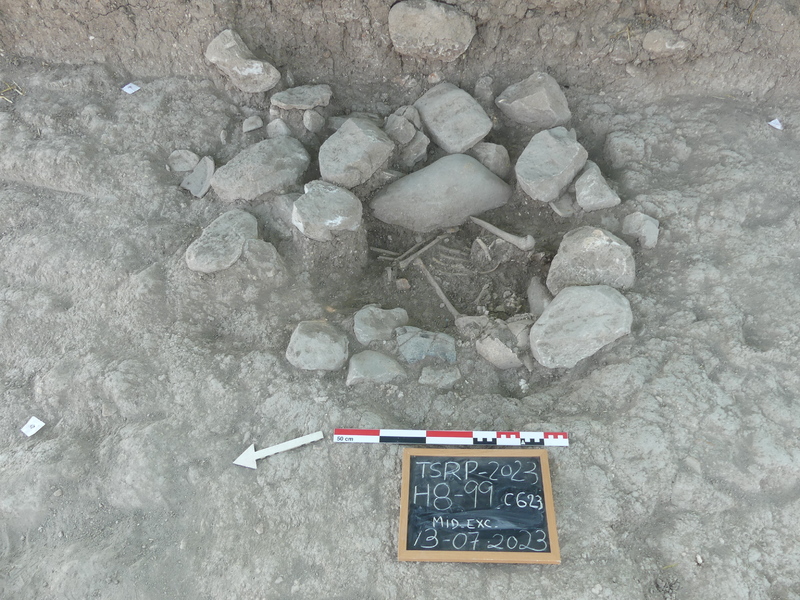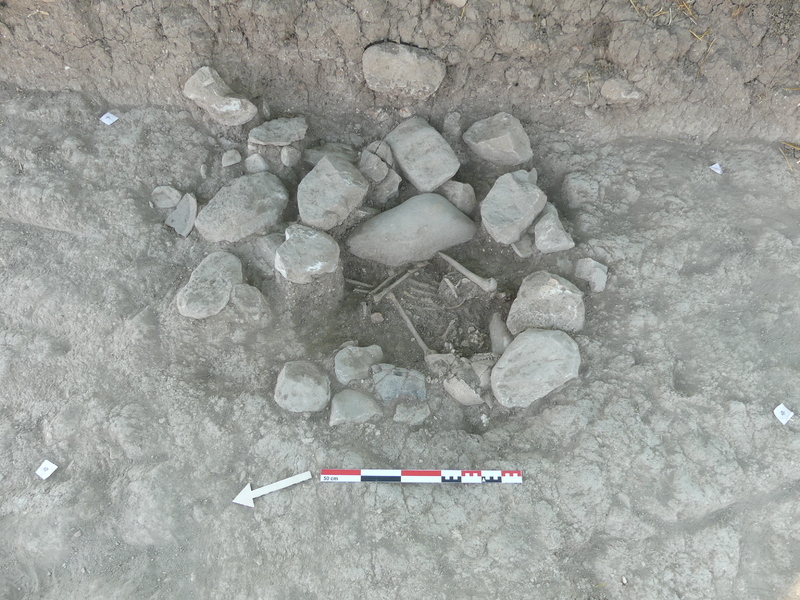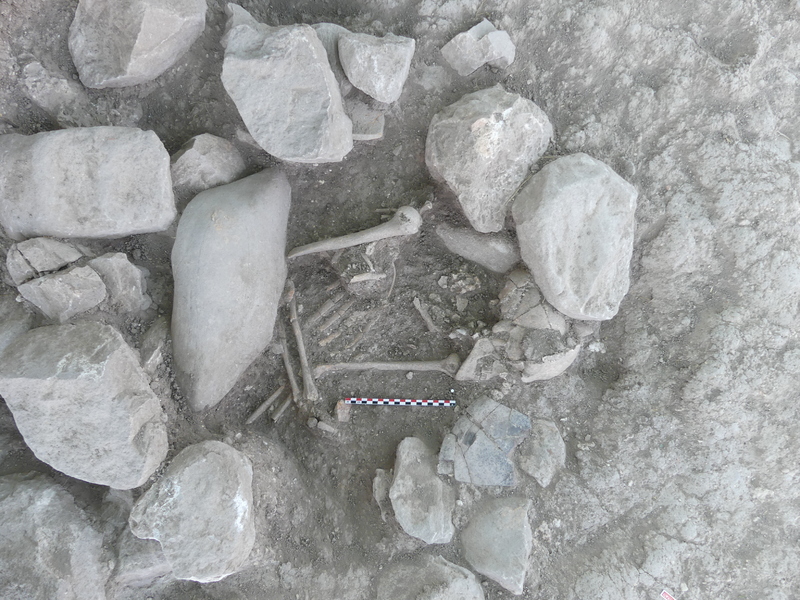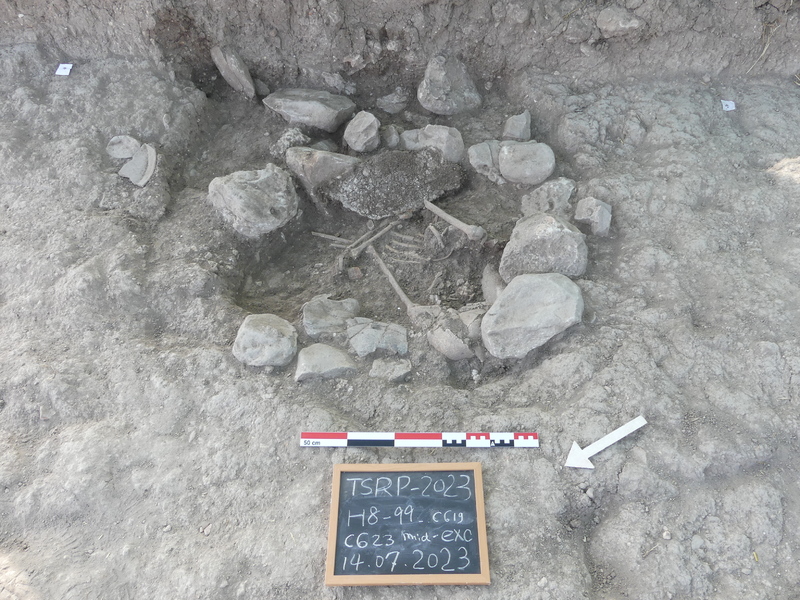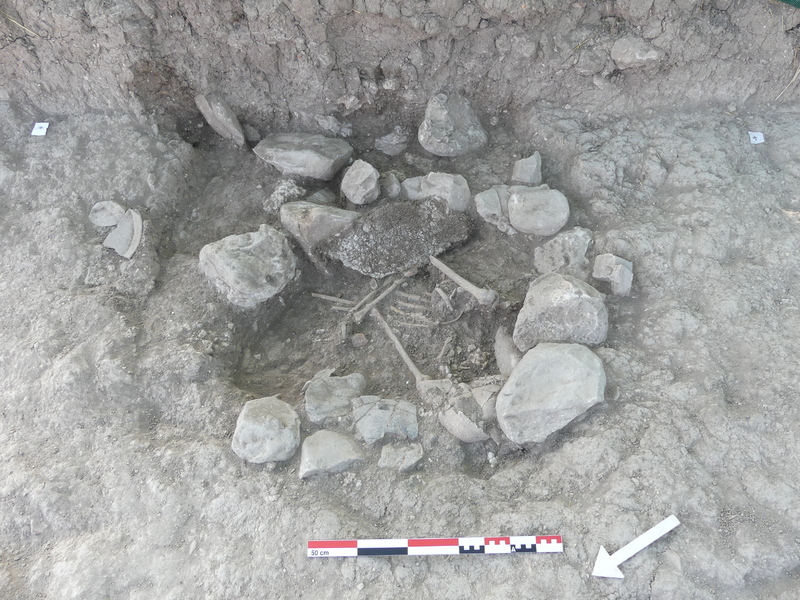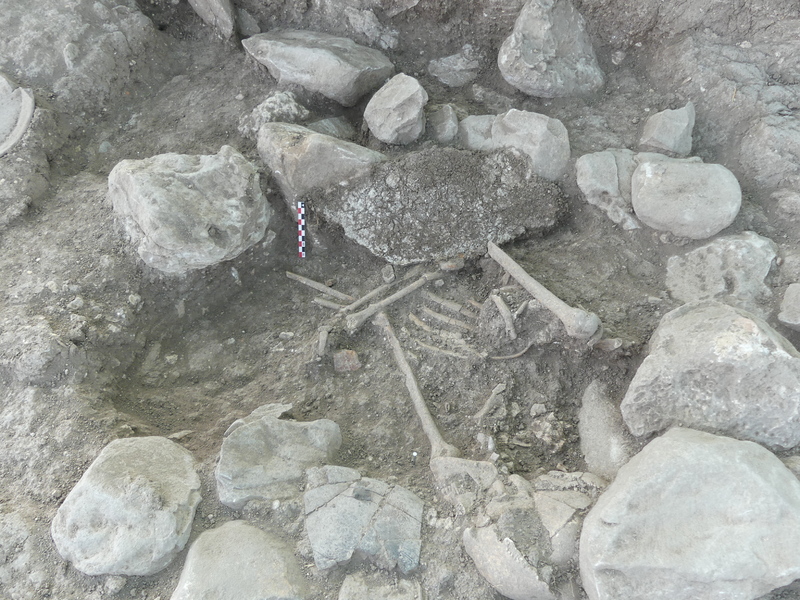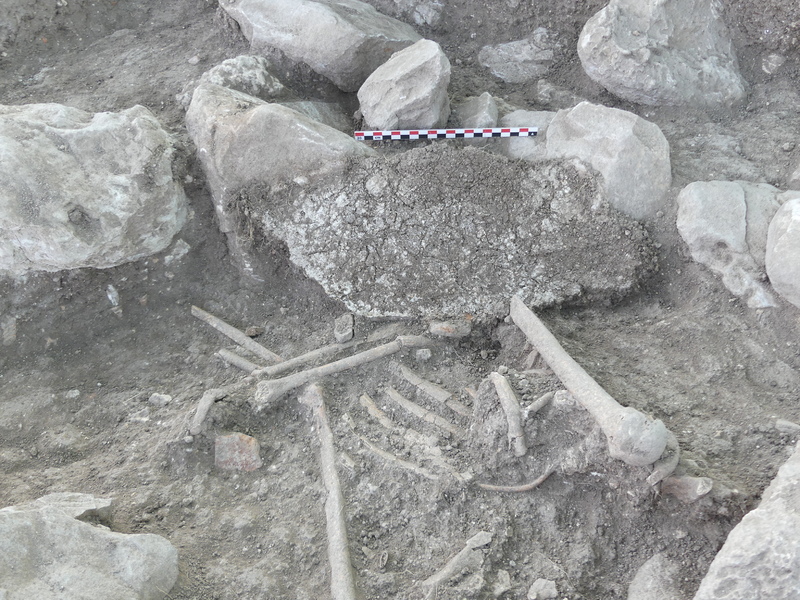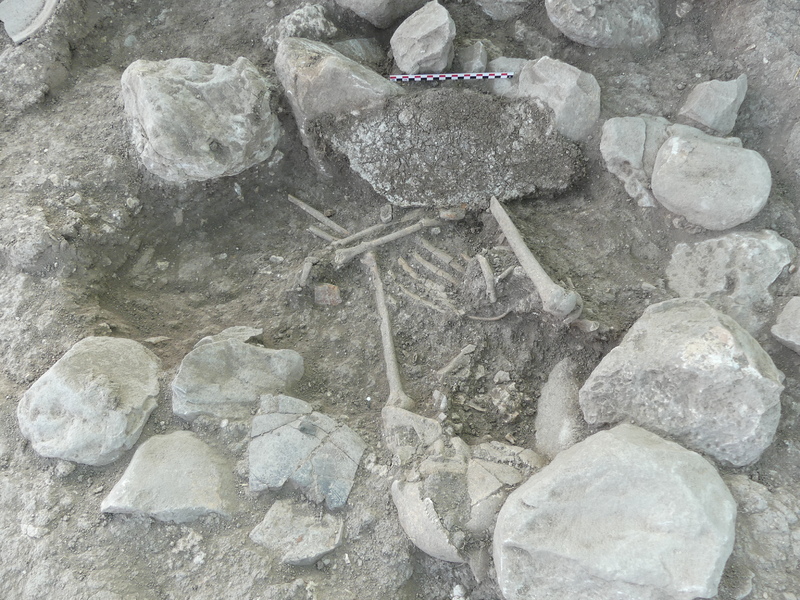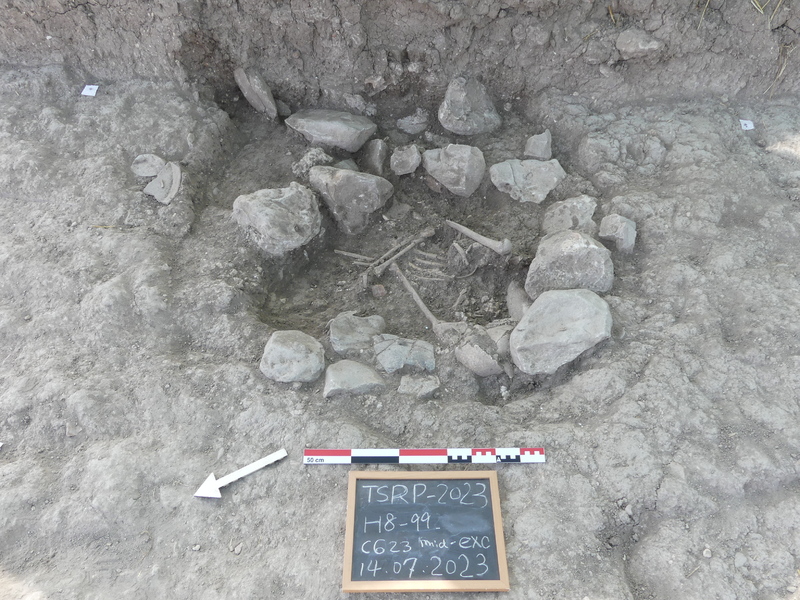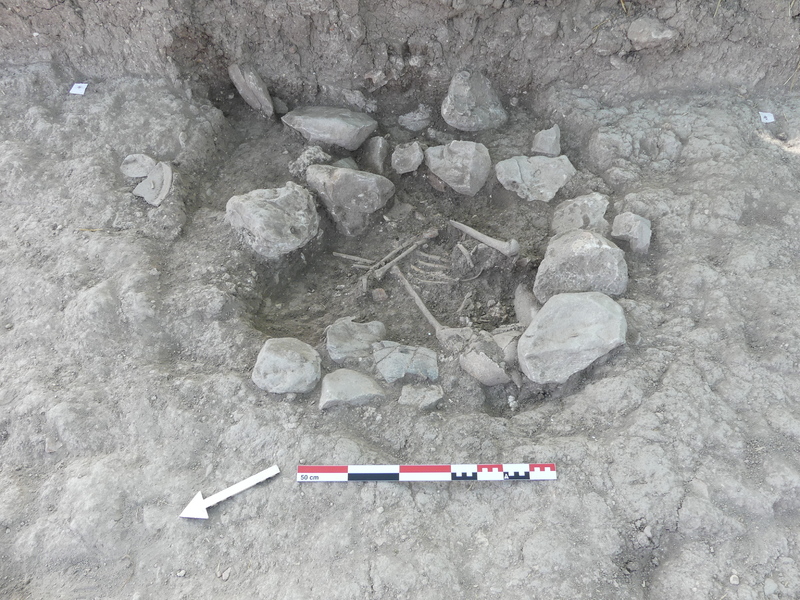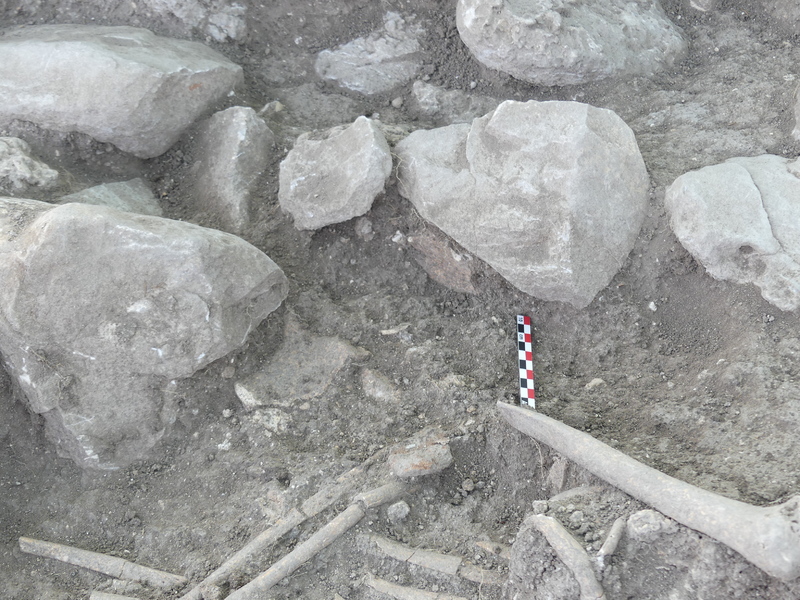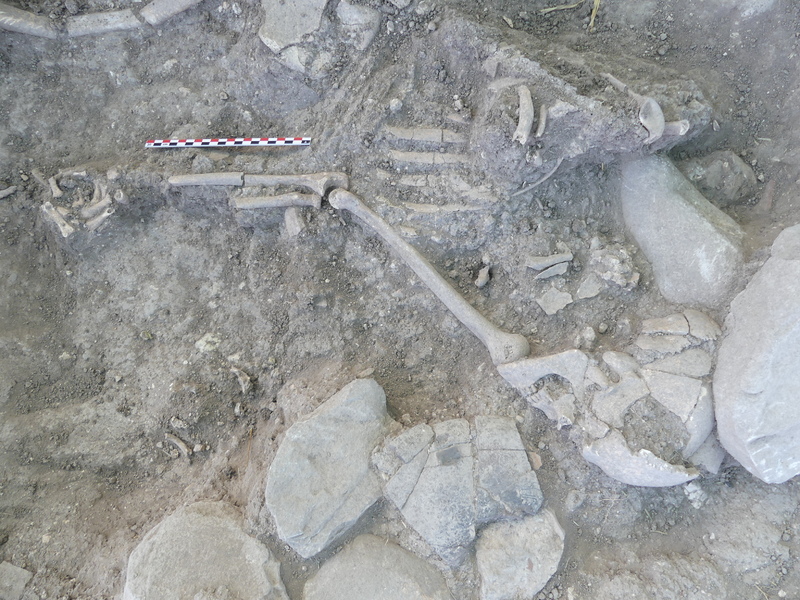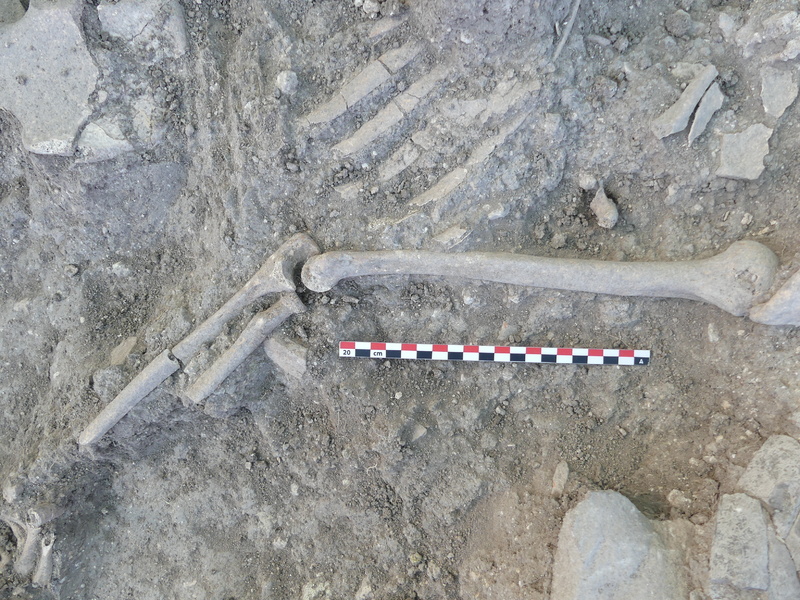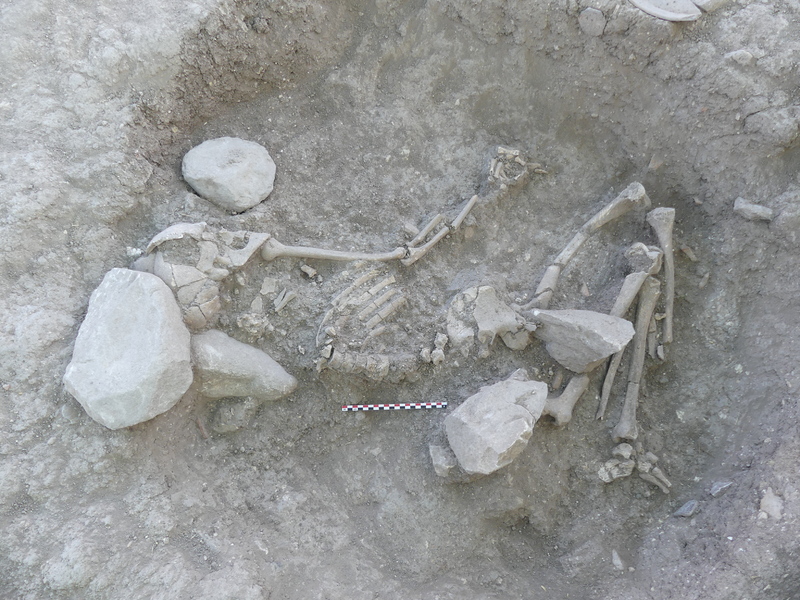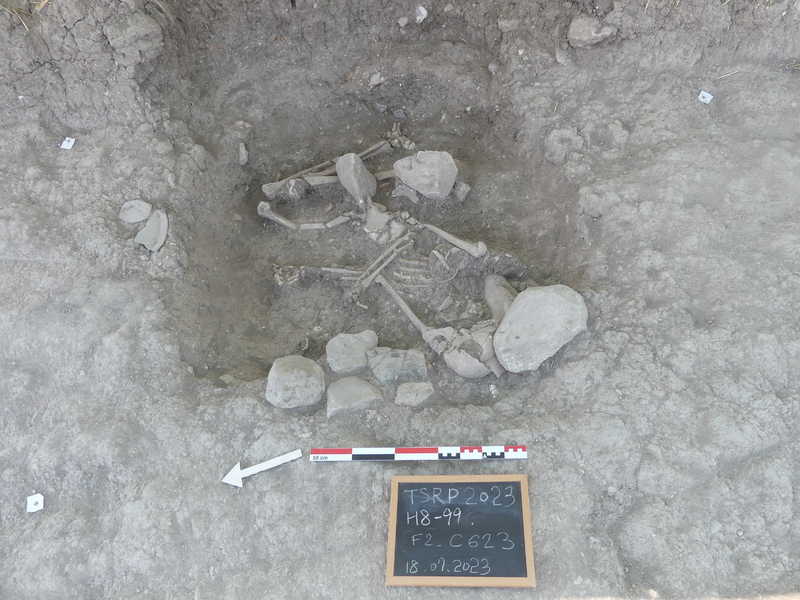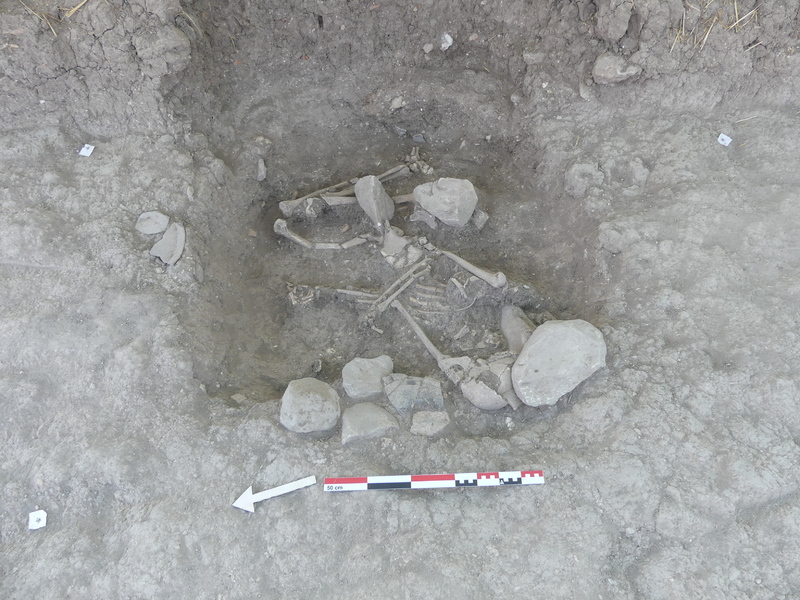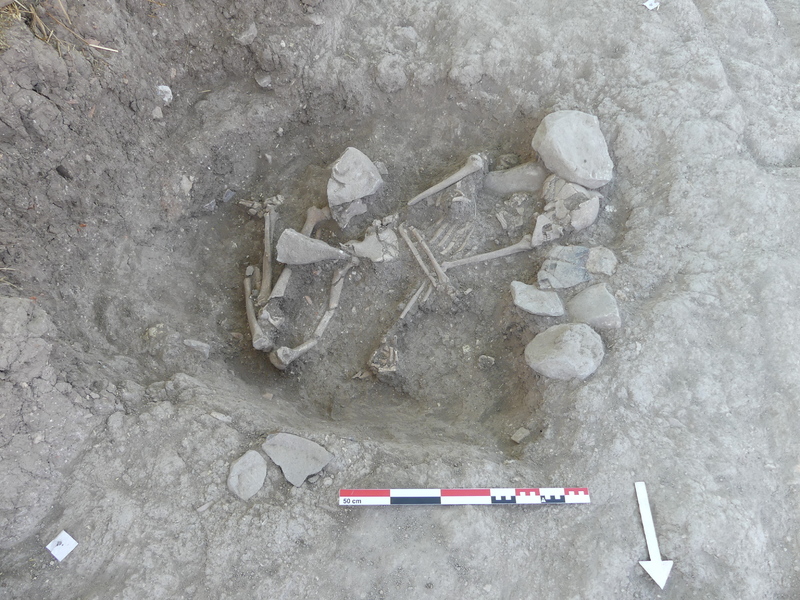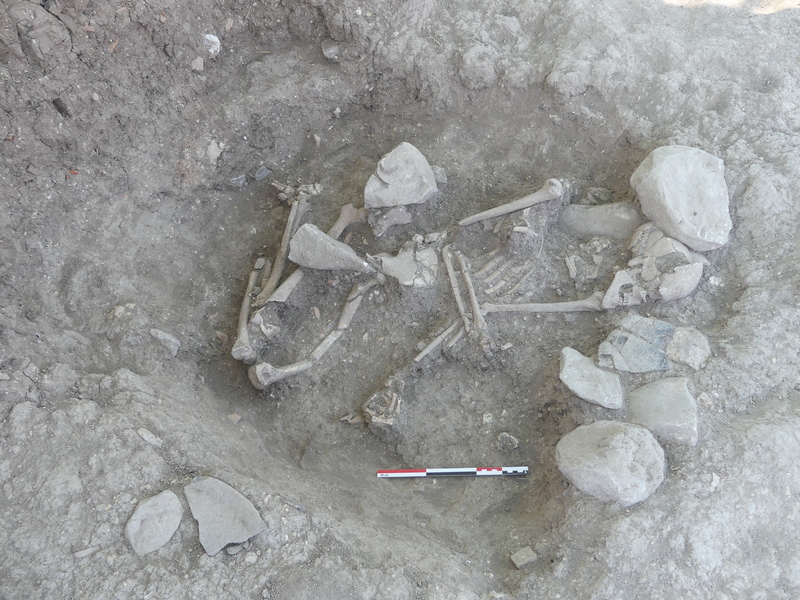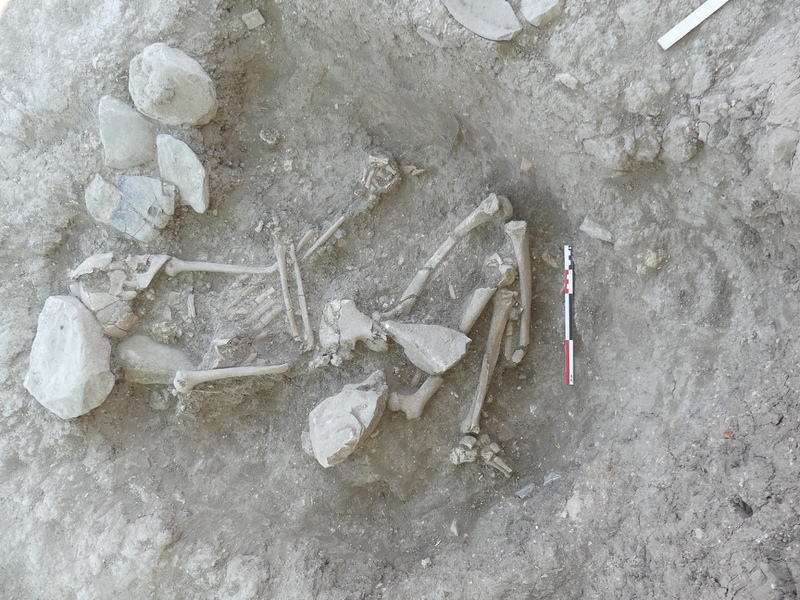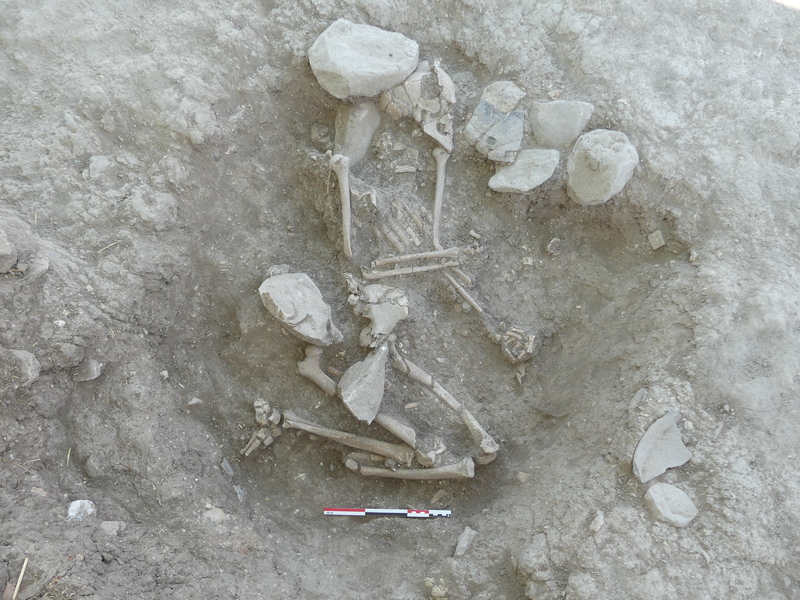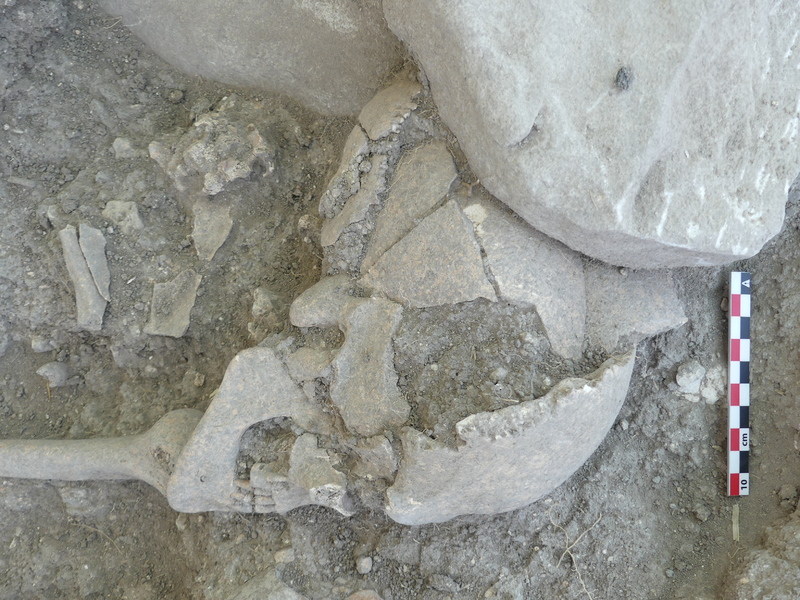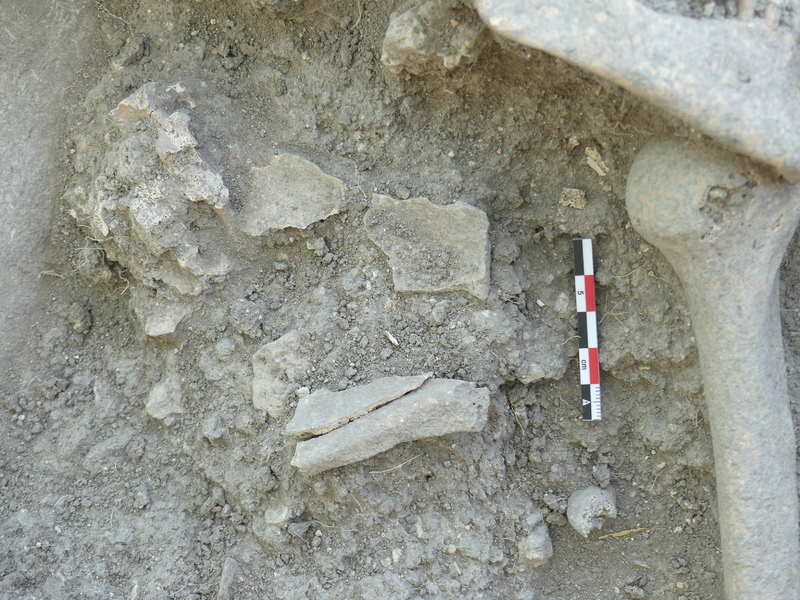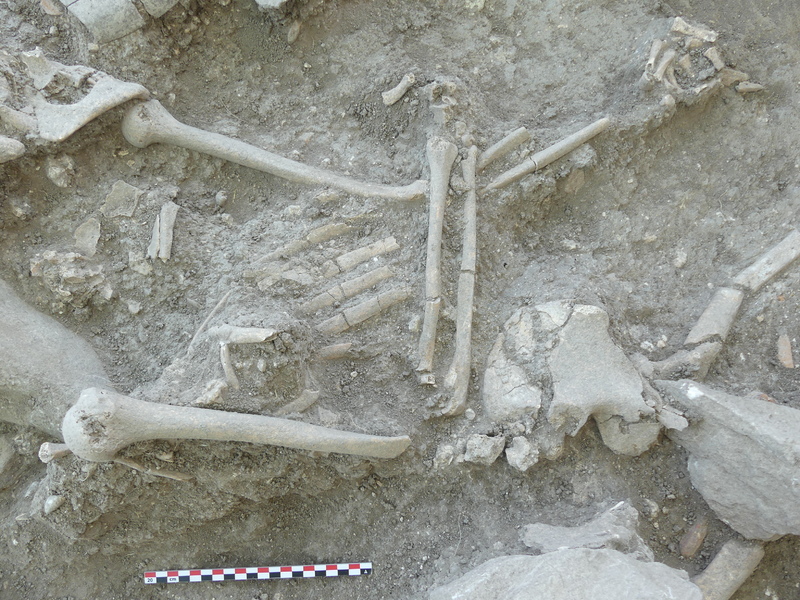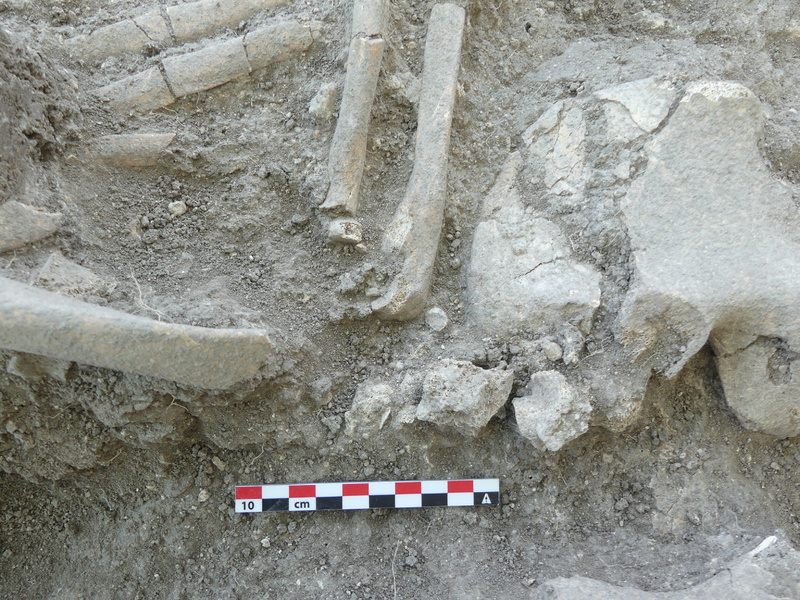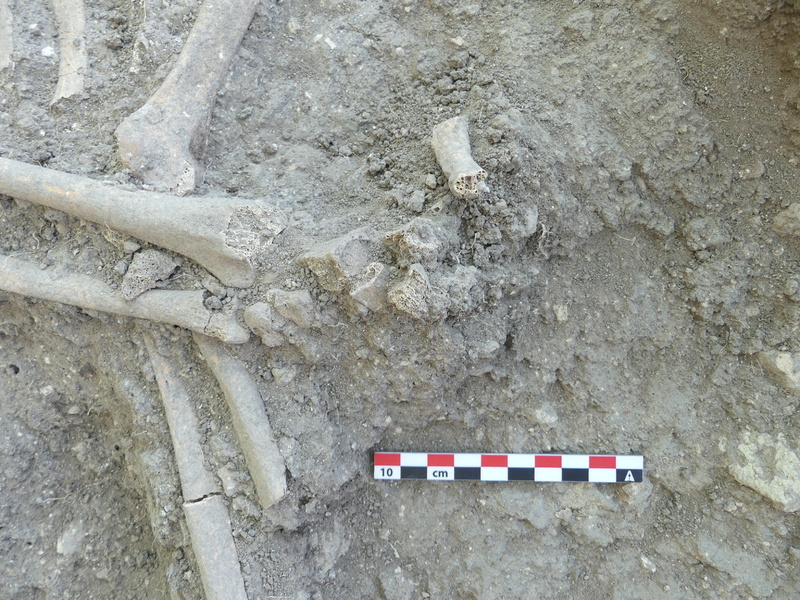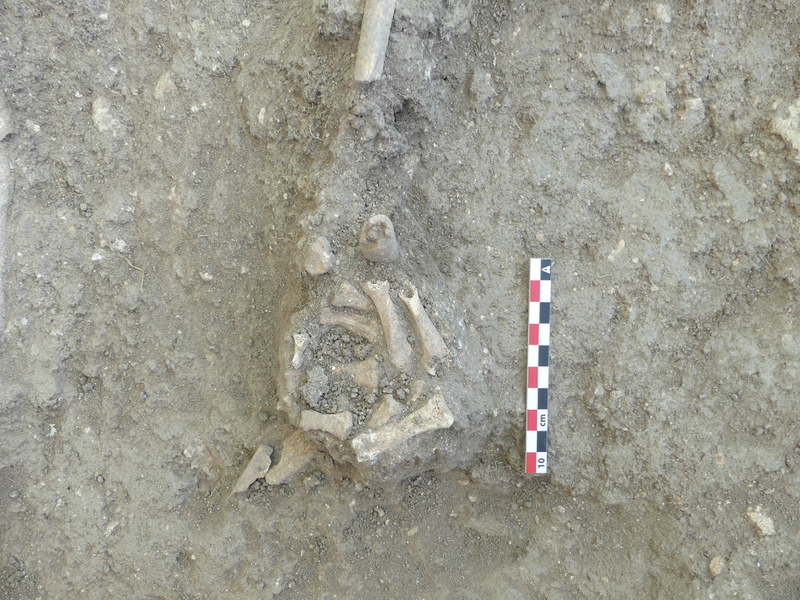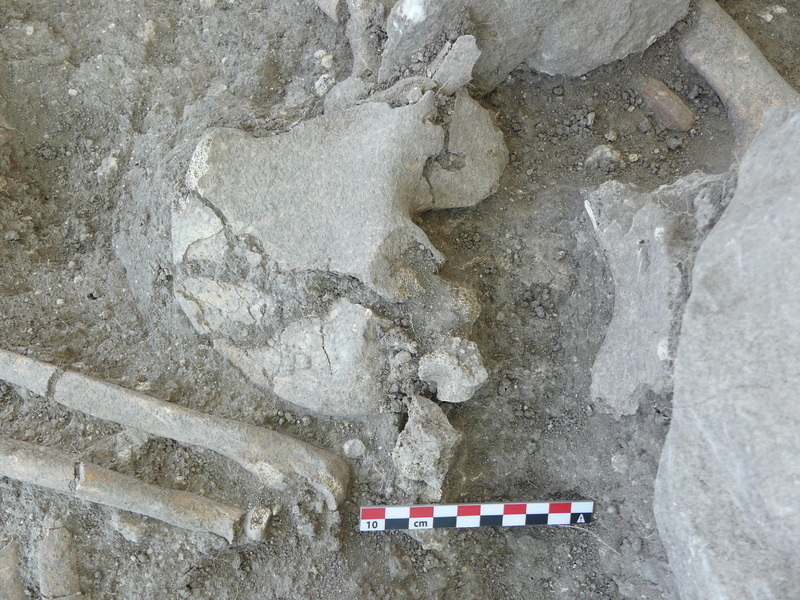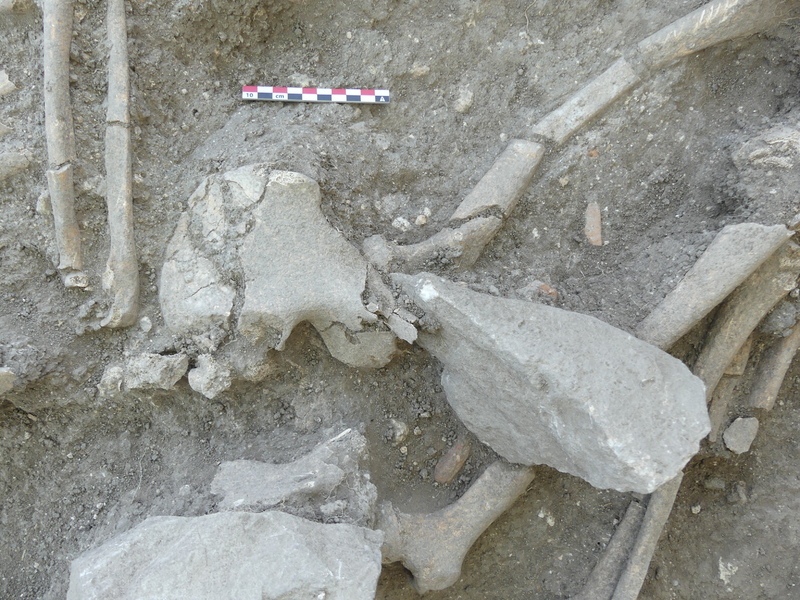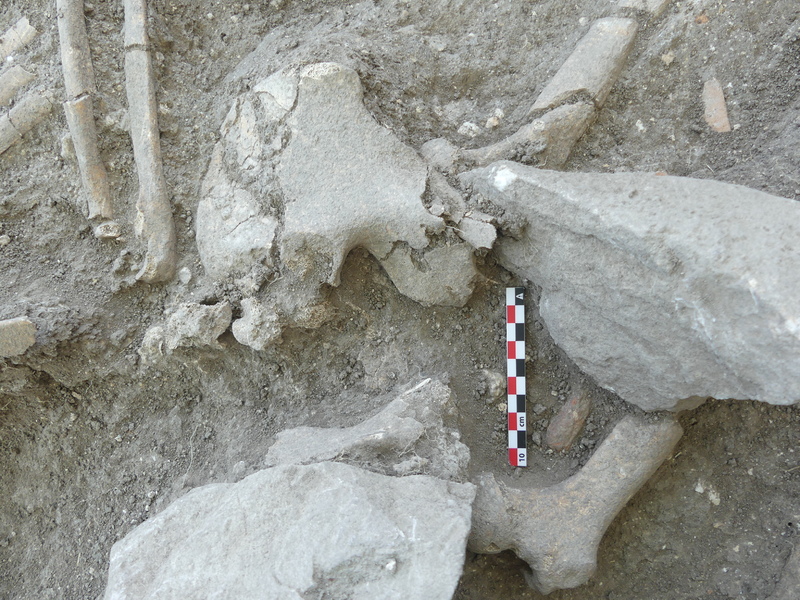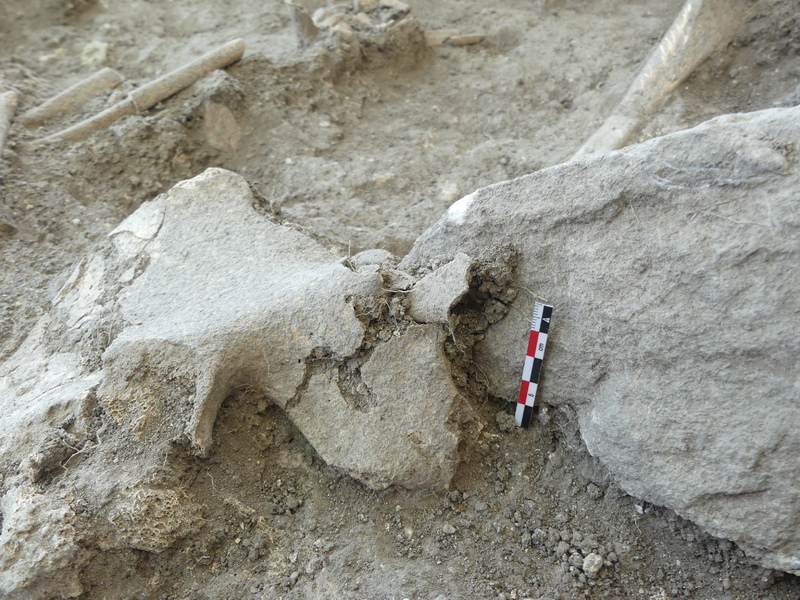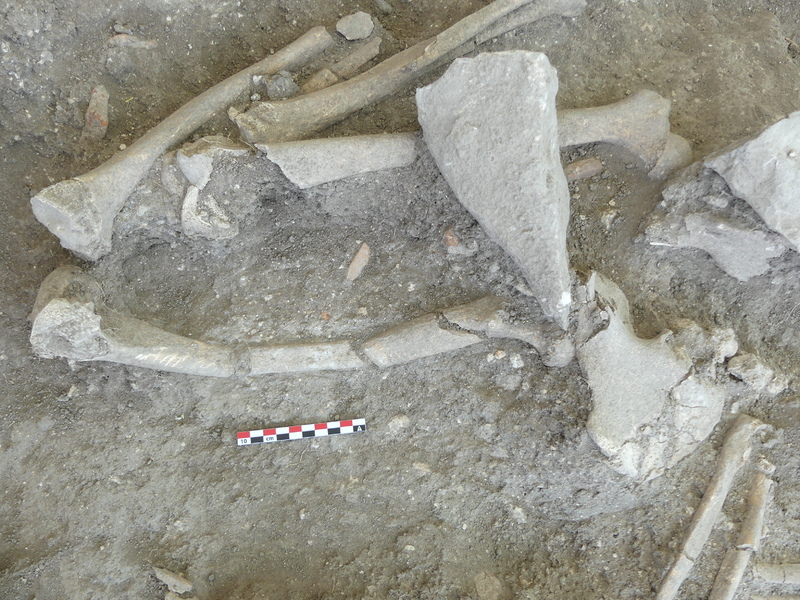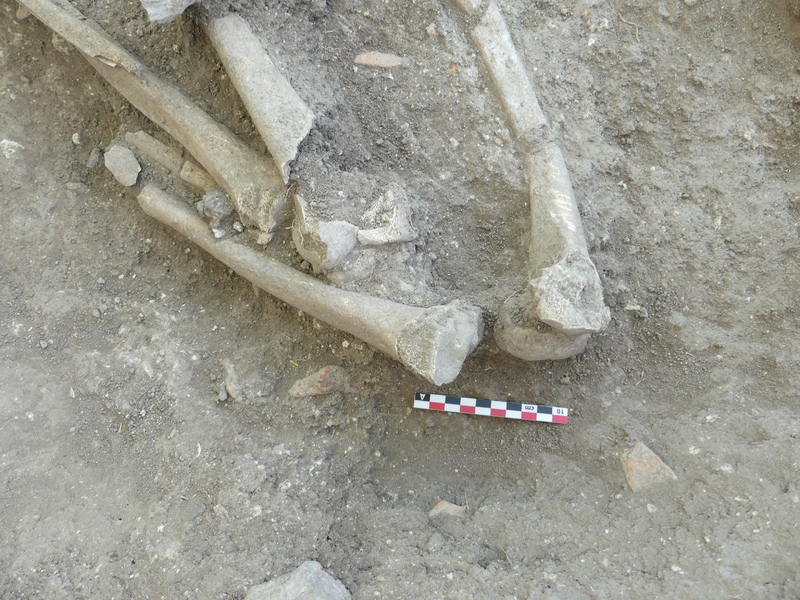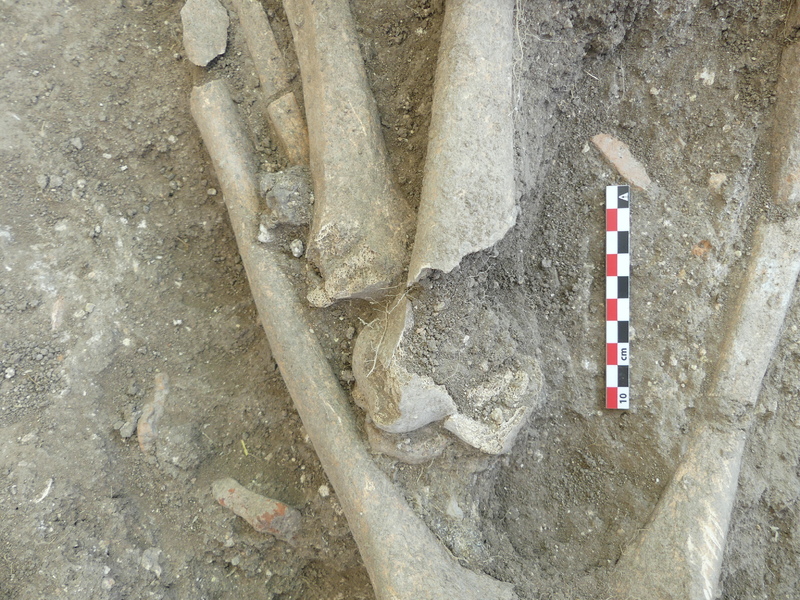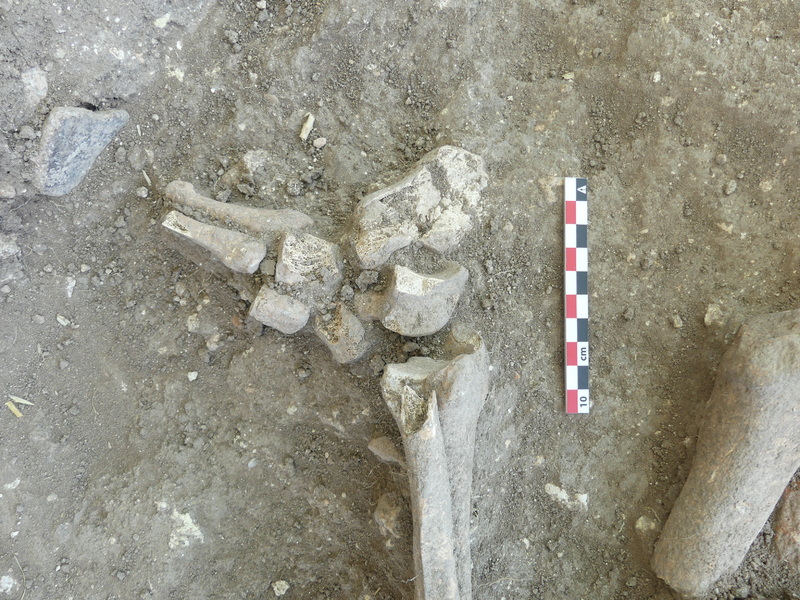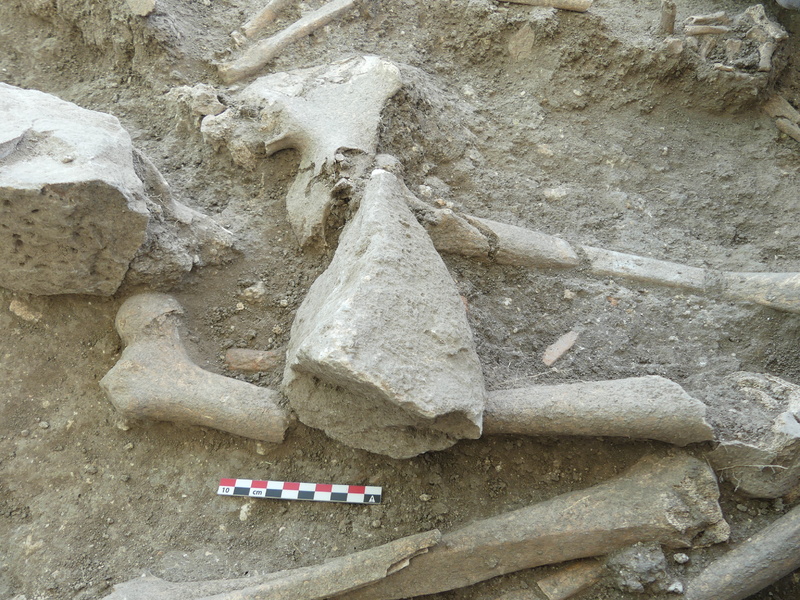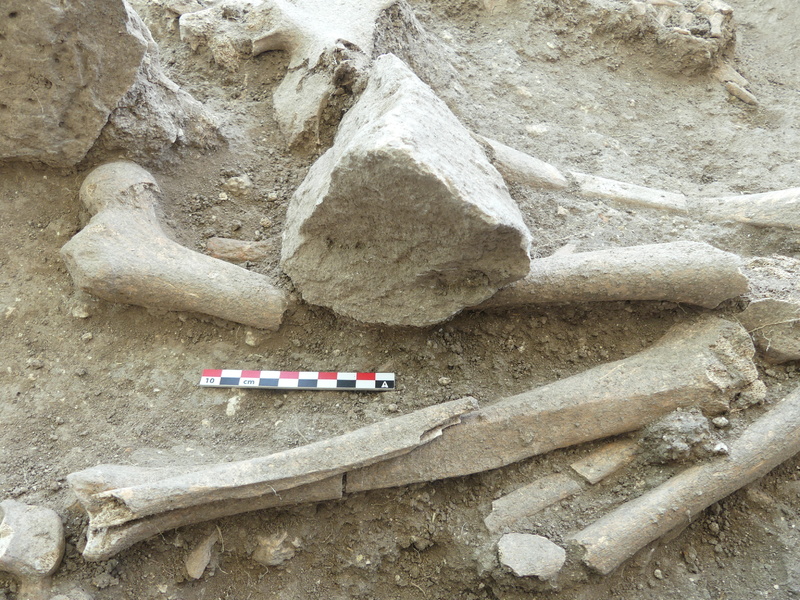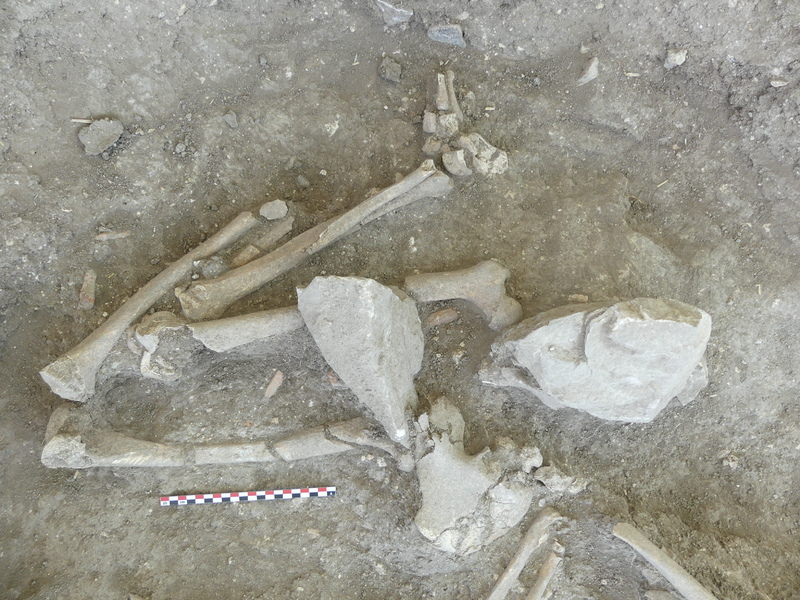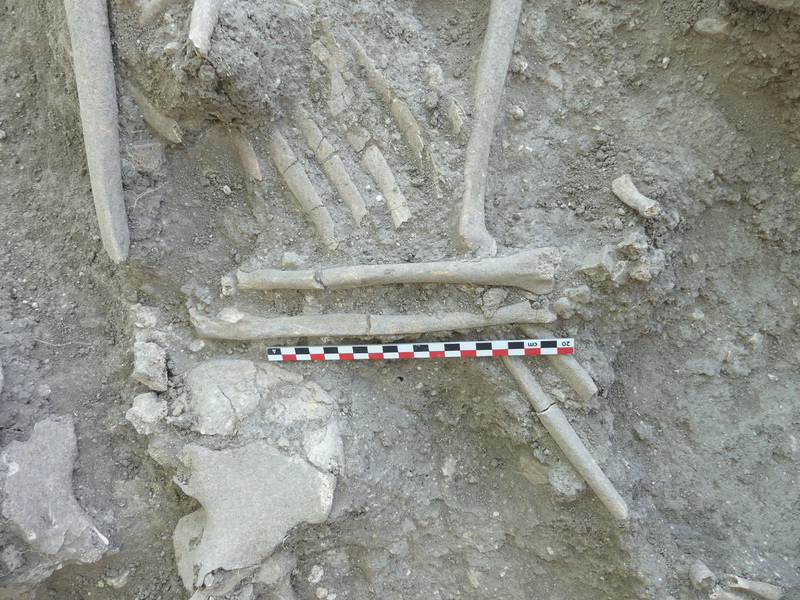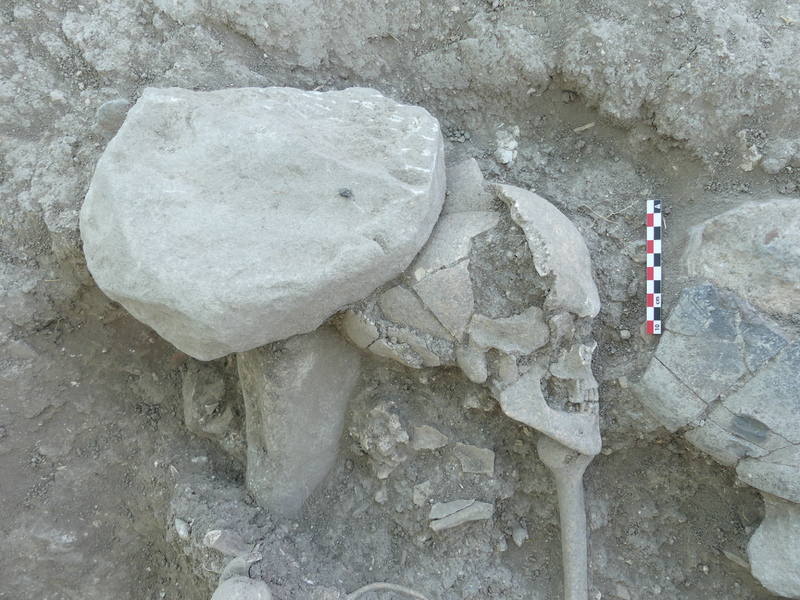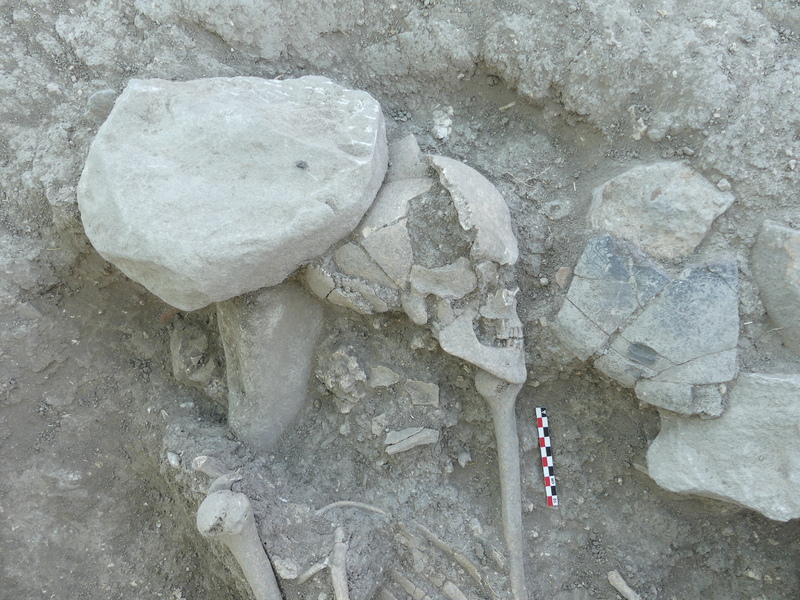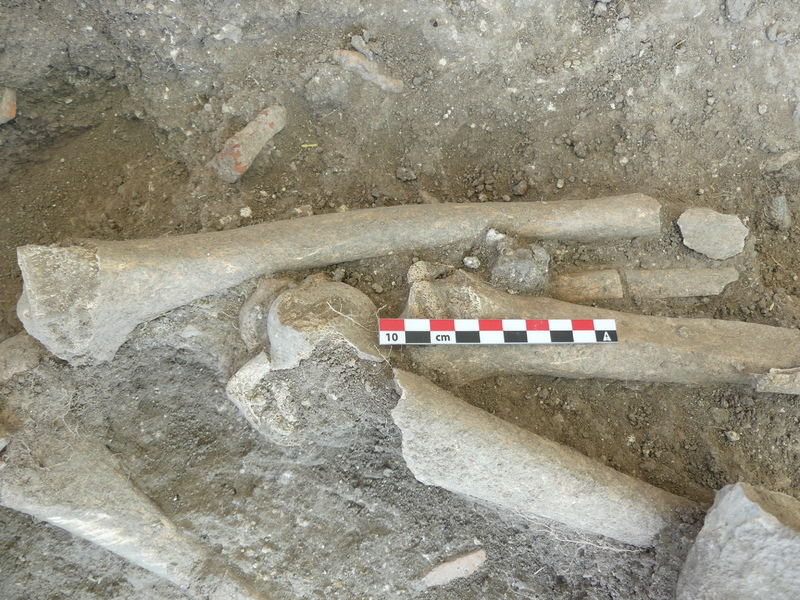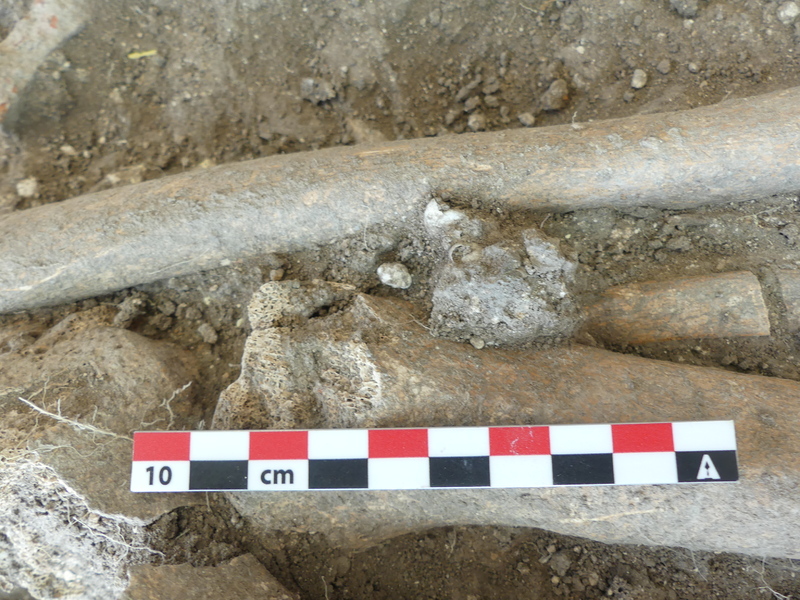Identifier
Title
Type
Description
Human skeleton belonging to the burial F2
Certainty of interpretation
Interpretation
Context 623 corresponds to the skeleton found in an articulated primary position within the burial F2. Its preservation is generally good, although some stones from the cover (c626, c614, c618) have fallen, and other anomalies appear to have been caused by animal activity.
The skeleton belongs to a young adult (confirmation pending through osteological analysis) and is positioned in a flexed posture on its left side, facing north.
The left arm lies along its body in a semi-flexed posture, while the right arm is bent in 90° angle crossing the torso. The legs are flexed and the right foot remains in a natural position, though the left foot is missing. As with the rest of the body, the head is positioned on the left side, framed by two stones (c637). It is likely that the right shoulder initially rested on the southern stone, as the right scapula was found diretly behind it.
The mandible is closed, bloked by the head of the humerus. The upper part of the spine and the right hand were disturbed, likely by animal burrows. Some ribs from the right side are missing ; however, the ribs found in the upper deposit (c621) may belong to the individual could have moved by animal as well (confirmation pending through the analysis of the deposit). The position of the left fingers remain unclear (was hand closed, or was it disturbed by animals?).
Additionally, some stones from the cover (c614) were found directly on the left coxal bone and against the right coxal bone, while the heavy central stone c626 were found in a neearly vertical position above the left femur, broken into four pieces along a concave curve. It is hypothesized that an animal burrow caused this anomaly by creating a void under the femur.
There is a linear delimitation / demarcation from the block behind the back of the head to the left foot. This alignement may be attributed to the morphology of the pit. However, the right humerus shoud have fallen laterally towards this linear limit behind the back of the deceased. The presence of a wall is postulated to have prevented the humerus from falling due to gravity during the decompostion. This suggests the initial presence of an organic wall (such as wood, textile, etc.) against the right arm. Alternatively, this could be due to the erosion of the pit wall, and the suubsequent deposition of sediment against the right arm.
Based on these preliminary observations, it is hypothesized that the burial was not immediately filled with soil after the inhumation, but was possibly sealed with a light cover of organic material (such as branches), over which the stone and soil cover (c614, c618, c626, c629) was placed. The degradation of the organic material likely caused the progressive infiltration of soil into the tomb.
No artefacts were clearly associated with the indivual. However, a flint (c619 #6), a tooth (619 #14), six shells (619 #13, #22, #23, #24, #25, #26), found in the area of the mandible, neck and shoulder, have been recorded separtely. Additionally, two sherds of pottery (c624 and 619 #9) were recorded separately due to their peculiar position within the burial.
Excavation date
Excavation technique
Investigation area
Investigation site
Record creator
Feature
Location in the investigation area
Excavated amount
Truncated
Samples
#6 : soil taken from the inside of the pelvis area for eventual parasitology
#20 : soil taken from right under the skull for eventua parasitology analysis
Estimated age
Skeleton sex
Hands preservation
Torso preservation
Arms preservation
Pelvis preservation
Legs preservation
Feet preservation
Head preservation
Burial deposition
Body attitude
Head attitude
Right arm attitude - shoulder
Right arm attitude - elbow
Right arm attitude - wrist
Right arm attitude - hand
Left arm attitude - shoulder
Left arm attitude - elbow
Left arm attitude -wrist
Left arm attitude - hand
Right leg attitude - hip
Right leg attitude - knee
Right leg attitude - ankle
Left leg attitude - hip
Left leg attitude - knee
In situ bone degeneration
State of bone
Taphonomic observation
Grave architecture
Record completeness status
Date Created
Date Modified
Rights Holder
License
Notes or comments
Dimensions of the bones
Right humerus head diameter : 4 cm
Left humerus length : 26.5 cm
Left coxal length : 19 cm
Diametre of the left feoral head : 4.3 cm
Right tibia length : 32 cm
Right foot width : 9 cm
Further informations can be found on the specific anthropological context sheets and the printed photographies added to the field archives.
Media (Images)
Linked resources
| TS2023 Feature 2 |
| TS2023 context 607 |
| TS Area 5 (H8) |
| TS23 H899 10 (3D Model) |
| TS2023 context 635 |
| TS2023 context 619 |
| TS2023 context 626 |


















| Plane | Position | Flip |
| Show planes | Show edges |
0.0
[ 0 , 0 , 0 ]





